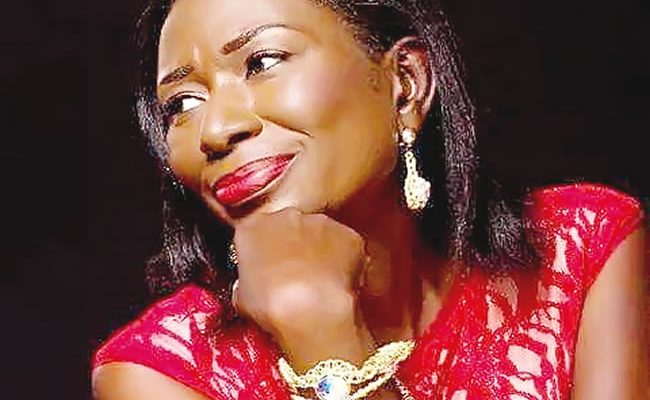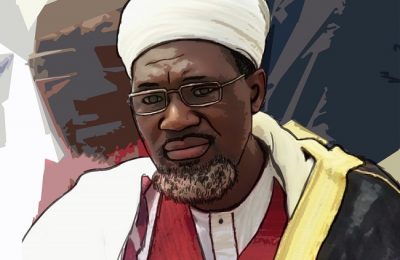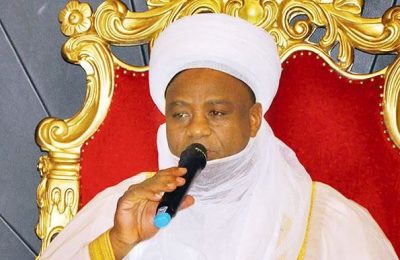
In the early nineties, Oyo State was a different place—a land of just twelve local governments, where the Ibadan Municipal Government (IMG) stood as the heartbeat of Ibadan’s governance. To be the chairman of the IMG was to wield a power close to that of the state governor, a position as revered as it was fiercely contested.
Two political parties—the Social Democratic Party (SDP) and the National Republican Convention (NRC)—dominated the scene. The SDP put forth an Alhaji, a name resonant with promise, while the NRC championed another Alhaji, a figure of equal resolve. At the close of an intense election, the SDP man emerged victorious, his win celebrated by none other than Alhaji Lamidi Adedibu, the formidable ‘strong man’ of Ibadan politics. Across the aisle stood Chief Adeseun Ogundoyin, the chief strategist and unrelenting force behind the NRC. Yet, the NRC candidate’s defeat was not so easily accepted—the NRC would see the SDP in court.

What followed was a courtroom drama to rival the greatest political sagas. As money and influence clashed, even crossing borders to the United Kingdom to take evidence to resolve a certificate issue, the Nigerian Tribune, a stalwart newspaper of political reportage, held its readers captive with every revelation, graphic and salacious.
I, a fledgling judicial reporter, was entrusted with the courtroom updates. But the stories were not to everyone’s taste. I held nothing back, my editors published as I wrote. The SDP, chafing at the Tribune’s unflinching headlines, grew increasingly uncomfortable.
One fateful day, the SDP’s discontent took a more dangerous shape. Infuriated by a report, a gang of party loyalists armed with cutlasses stormed the Tribune House at Imalefalafia, Oke Ado, Ibadan, baying for “that reporter, Tinuola Ayanniyi, whose ‘father’ is an NRC man.” My head office was thrown into a frenzy, and panic, security alert was raised to the highest point possible.
Our Editor-in-Chief, Mr. Biodun Oduwole, in a panic, dispatched our News Editor, Mr. Seyi Adebayo, to retrieve me from the High Court. Luckily, fate was on my side that day—I was nowhere near the court. Some one hour after the invaders had left, I strolled into the Tribune premises to the alarm and surprise of many. “Where have you been?” My bosses and colleagues chorused. I was at home. It was then I got to know of the thugs’ invasion. A child of God, I escaped them.
But I kept going to court, and they were unrelenting. With the risk growing, my editors decided I should lie low. And I did. I stopped going to court, even to cover other cases.
My father, however, noticed the break in my routine. Over breakfast one day, he pressed me for the truth, and I confessed: my stories were stirring animosity, and the SDP led by Chief Adedibu saw my uncle, Alhaji Bola Ayanniyi of the NRC, as my father—a misunderstanding that fanned their fury.
My father listened, then set his jaw and offered a piece of timeless wisdom: “Do not run from Adedibu or his men. Go to court, greet him respectfully, and look him straight in the eye.”
My mother was alarmed; her protests filled the room, but I trusted my father’s advice. And so, with trembling hands, I returned to the court that day. The courtroom was filled up as usual with politicians of both tendencies with their roughnecks everywhere. I greeted Alhaji Adedibu as instructed; I held his gaze as if strength could transfer through a single look. Miraculously, it worked. Adedibu, strongman of Ibadan politics blinked first and lowered his gaze. I was back, reclaiming my spot as the only woman on the journalists’ bench then.
Judgment day loomed, the atmosphere crackling with anticipation. The ruling was expected to fall decisively, and it was set for the unlikely hour of 10 p.m.; Ten O’clock at night! Before I left for the court, my editor-in-chief, Mr. Oduwole sought my assurance that I could handle the task. I nodded, steeling myself for what was to come.
Arriving early, I devised a plan. Approaching the tribunal chairman, I voiced my concerns, humbly requesting permission to use the judges’ stairs for my own escape and safety once the judgment was delivered. He hesitated but finally agreed. “That’s okay…The police won’t stop you,” he told me, firmly.
When the verdict was pronounced, I seized the moment, slipping down the stairs and darting away like a fugitive, the night enveloping my footsteps.
Fortune favored me again; just as the tribunal members made their exit, the generator powering the lights fell silent, shrouding my escape in darkness.
As I reached the courthouse gate, there was Mr. Seyi Adebayo, my news editor, waiting with his car to whisk me out of danger and ensure I made it back safely. I stepped into the Tribune office that night, heart still racing, but with a story to tell and a deepened resolve to stand firm in the face of danger.
That was just one of the many cases that threatened my safety in my almost 30 years of practice as a Tribune journalist. In all the cases, I had my company and my editors as my bulwark against the buffettings of naked power.
I join my colleagues everywhere to say Happy 75th anniversary to our Tribune.
Tinuola Ayanniyi was at various times Nigerian Tribune’s News Editor, Deputy Editor, Associate Editor and Editor, Tribune Online. She now lives in the United States.
READ ALSO: Police reject N174m bribe, arrest suspected internet fraudster in Lagos








